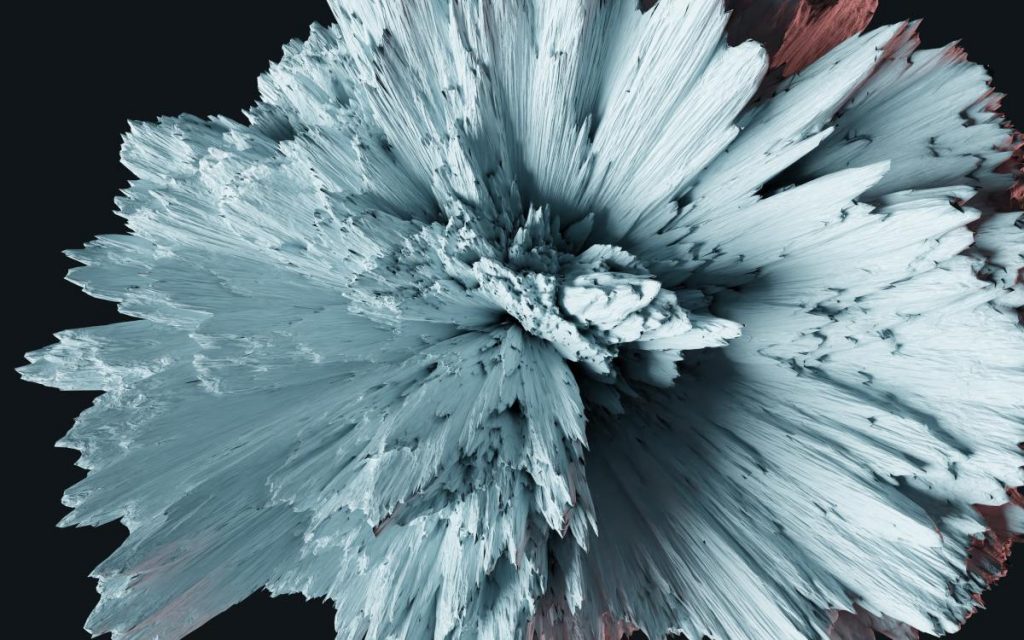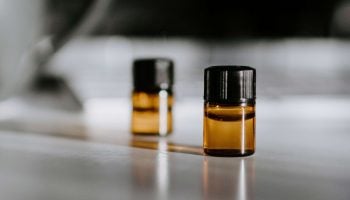There’s no question that we’re currently in the midst of a mental health crisis. In today’s social, political, and technological climate, mental health disorders are growing increasingly prevalent. Of these illnesses, depression still dominates, affecting over 350 million people worldwide and characterized as the leading cause of disability globally by the World Health Organization. Depressive symptoms such as chronic mood disturbances, physical complaints, fatigue, loss of interest in activities, and suicidal tendencies manifest in diverse ways. Yet the therapeutic model of combining SSRIs (usually accompanied by unpleasant side effects) and psychotherapy, for the most part has been ineffective for those prone to treatment-resistant depression.
With psychedelic science reporting such promising outcomes for depressive disorders, the rising interest in the role of the psychedelic drug LSD within the area of psychiatry has increased, along with the revival of research of other psychedelics, such as psilocybin, MDMA, ketamine, cannabis, and ayahuasca. This article dives into LSD for depression, its applications, and what a future of LSD as a viable option for depression therapy might look like as the third wave of psychedelics continues to unfold.
For a complete list of trusted psychedelic therapists, visit Third Wave’s Psychedelic Directory.
LSD for Depression Treatment
LSD or lysergic acid diethylamide belongs to the pharmacological group known as “classical hallucinogens”, along with other psychoactive substances such as psilocybin (magic mushrooms) and dimethyltryptamine (DMT). Because these compounds share a chemical structure similar to the neurotransmitter serotonin (influencing the 5-HT2A receptor), it is no surprise that clinical trials have found them effective for treatment-resistant depression.
Recent placebo-controlled studies in neuroscience have shown that entheogens such as LSD and psilocybin can increase positive mood and social behavior, enhance emotional empathy, and reduce the recognition of negative emotional states, such as sadness and fear. Understanding how these results are achieved in the context of mental illness is important, since most LSD research is a tad outdated and was mostly a focus during the second wave of psychedelic research in the 1960s to the 1980s.
Now, scientists and psychonauts alike are tapping into the potential of LSD, with both groups intrigued by its two most commonly considered applications of microdosing and macrodosing to help heal complex depressive disorders.

LSD Microdosing for Depression
Albert Hofmann, the father of LSD and its hallucinogenic effects, suspected decades ago that ‘tiny doses, perhaps 25 micrograms’ of LSD could be a helpful antidepressant. For years, positive self-report measures from curious explorers have been ubiquitous on underground online forums and gained mounting credence within the mainstream after public figures began publishing personal accounts, like Ayelet Waldman did in her book, A Really Good Day.
Although the research is still emerging on the effects of LSD microdosing and depression, some favorable findings have been reported so far. A recent analysis comparing different microdosing protocols for both psilocybin and LSD showed that regular microdosers of both substances reported effects such as positive mood, decreased negative mood, and an improvement in relationships with others. Here, a microdose was considered roughly 10-20 mcg of LSD and 0.3-0.5 g of psilocybin-containing mushrooms.
Interestingly, some participants noted that these effects were closely related to the type of microdoses used. For instance, LSD participants often reported more cognitive and stimulating effects. In contrast, psilocybin users experienced more improvements associated with emotional well-being. In each case, microdosing frequency did not appear to significantly influence the outcomes, with most users reporting taking low doses between two and four times a week, ranging from a few weeks to a few months, and in several cases, even years.
Clinical research shows that the emotional effects of LSD microdosing are the result of plasticity changes in the amygdala, or the small walnut-shaped collection of cells located at the center of the brain where emotions are given meaning, remembered, and attached to associations. LSD-induced changes in brain connectivity have a powerful influence on our limbic (or emotional) systems. These increases in connectivity are related to varying degrees of positive mood and improvements in well-being for microdosing patients. This kind of cognitive flexibility may also decrease rumination, which is the tendency many depressed patients have to replay their negative thoughts in a series of feedback loops to no end.
Thanks to results like these, microdosing is coming to be considered a viable alternative to help curb low-mood symptoms associated with depression. Other potential benefits of taking small doses of psychedelics such as LSD and psilocybin include improvements in energy, creativity, increased empathy, and improved relationships. To learn more about how to optimize the best microdosing protocol for your personal growth, check out Third Wave’s Microdosing Course.
LSD Macrodosing for Depression
In 2014, Gasser et al. attempted to revive the long-lost clinical research into LSD for the first time in over 40 years. After performing an initial safety study, their focus was to investigate the psychopharmacology of how ingesting LSD may help alleviate end-of-life anxiety and depression in terminally-ill subjects. This was a hot topic during the initial research period of the 1960s, but as psychedelic science came to a crashing halt, so did its potential to serve those facing existential dread and in need of psychospiritual healing.
Their results were reassuring–it appeared as though high doses of LSD successfully decreased a patient’s end-of-life depression and anxiety symptoms. The three mechanisms associated with these effects included the individual’s cognitive experience, or ability to perceive novel thought processes and ideas; their psychodynamic experience, or confronting the psychological material of their mind; and the psychedelic peak experience, similar to the mystical experience of transcending the ego and feeling a sense of awe and reverence.
With such enticing results reported for macrodosing with LSD, one might wonder: does dosage matter? One study found that responses to high doses of LSD in patients struggling with their mood were subjective, and positive outcomes in experiences with LSD macrodosing varied, starting at the 25 mcg dose. The 50 mcg dose produced substantive positive effects on mood, with no anxiety and fewer effects of ego dissolution. Surprisingly, there were no differences reported in the ‘feel-good’ drug effects between the 100 mcg and 200 mcg doses of LSD. However, 200 mcg (considered a moderate macrodose) was associated with more ego dissolution and anxiety during the psychedelic experience overall. So, a single dose of 50 mcg might be the best option for someone who uses LSD for the first time if they’re looking to minimize feelings of anxiety while still experiencing its therapeutic benefits.
LSD for Depression in Clinical Trials
Recent studies in neuroscience have shown how LSD’s effects on the brain are profound, from its hallucinogenic impact to its emotional outcomes. Institutions such as Johns Hopkins University, New York University, the University of California, and Imperial College London have all reported the effects of LSD on the brain and how psychedelic therapy, in association with the substance, has life-changing results for individuals struggling with depressive symptoms.
Matthew Johnson, associate director of the Johns Hopkins’ Centre for Psychedelic Studies and Consciousness Research, along with his associates, compiled a document titled Hallucinogens and Entactogens: Establishing a New Class of Psychotherapeutic Drugs? touching on some of the current applications of the therapeutic outcomes of psychedelics. LSD experiences were reported to impact the brain’s neurotransmitters by creating entropy, or increasing access to different mental states. By inducing entropy and upping the brain’s plasticity, subjects saw lower functions in rigid thinking, increasing environmental sensitivity and creating an intense emotional release. This emotional purge primarily plays a part in improving the mood of those battling the symptoms of major depressive disorder and other psychiatric illnesses compared to control groups.
Besides Johnson’s work, researchers have attempted to perform double-blind placebo-controlled experimental studies with LSD, despite the challenges of blinding with classic hallucinogens. Ratings on standard scales such as the ‘Mystical Experience Quotient’ or the ‘Death Transcendence Scale’ have shown that depression scores work in tandem with these measures, and 12 months following the trial, 71% of participants rated their LSD experience “among the ten most meaningful experiences of their lives.” These positive outcomes on mood, behavior, and attitudes show that LSD has undeniable value within the world of mental health treatments.

What do we truly know about psychedelic drugs?
Despite the clinical research, naysayers may still be put off by the stigma associated with LSD and question whether it has a place within psychiatry. Here, we answer a few questions about its possible adverse effects and what things may look like for the future of these treatments.
Safety and Psychopathology: Could LSD Cause Depression?
With promising early results reported on the effects of LSD in clinical studies and self-reports, the question of whether LSD has the potential to become an FDA-approved treatment remains. But can we trust that its effects are safe for most people? What adverse outcomes could there be on mood and behavior, especially in those with more difficult-to-treat mental health conditions?
LSD was initially considered to have psychotomimetic effects, meaning it mimics psychosis symptoms commonly displayed by patients with schizophrenia. This made it a compelling substance to study while raising questions about its impact on healthy volunteers. The current consensus is that although LSD does not mimic psychosis, it may cause some feelings of discomfort during the trip, especially in those with a mental health diagnosis. These can range from high blood pressure or a perceived “bad trip” to inducing transient feelings of anxiety and depression.
A 2020 study out of Imperial College by Zeifman and Carhart-Harris reports that, despite possibly inducing uncomfortable symptoms during therapy, LSD can decrease levels of depression afterward. They found that patients overcame something called “experiential avoidance,” or their attempts to avoid thoughts, feelings, memories, and other difficult internal experiences. While LSD may allow individuals to confront their negative emotions during treatment, feelings of anxiousness and depression can be integrated into daily life later on. Integration helps users understand painful emotions while producing positive emotional insights throughout the healing process.

What role will LSD play in the future of depression therapy?
LSD use is on the rise, having increased 200% from 2002-2018. Due to its Schedule I labeling and complicated political history, the red tape around this substance has been challenging for clinicians to overstep through their research. However, recent breakthroughs and innovations have helped in pushing towards general acceptance and a positive outlook from the Food and Drug Administration. The first step towards making sure that the connection between LSD and depression can be further explored and accepted by the FDA is to depoliticize LSD, making the research process more seamless for future clinical trials.
Robin Carhart-Harris and GM Goodwin believe are optimistic about the use of hallucinogens, such as LSD, in the treatment of depression. Each researcher has their take on which type of depression might be best treated with the substance. For Goodwin, the most obvious unmet need is treatment-resistant depression, whereas Carhart-Harris is leaning towards its use in unipolar (or what we would typically consider regular) depression. He questions whether psychedelics should be considered a last-ditch attempt to improve mental health symptoms since treatment with these medicines is fast-acting and highly effective compared to traditional SSRIs.
Another critical step to consider will be to learn how psychological interventions can maximize the positive influences of LSD treatments in healthcare. Once research-based evidence is widely available and double-blind studies are the norm (possibly comparing two psychedelic substances of similar intensity and their effects), the possibilities of combining different therapeutic techniques with psychedelics could be endless. As we have seen with substances such as psilocybin and MDMA, this could then open the door to its use in other difficult-to-treat conditions, such as post-traumatic stress disorder and anxiety disorders, in addition to depressive disorders. This is great news for the outlook of LSD to relieve depression.
So, if you’re struggling with depressive symptoms, should you rush to toss out your antidepressants and invest in LSD psychedelic therapy? We’re not sure just yet, but the evidence is hinting that the power of harnessing LSD in a therapeutic context will continue to unfold as progress is made throughout the psychedelic renaissance. The need for widespread applications of double-blind placebo-controlled studies in psychiatry is evident, but what neuroscience has uncovered so far is enough to shake the current paradigm of mental health treatments for years to come.
If you want to learn how to microdose with expert guidance rather than going it alone, sign up for our Microdosing Course. Using the latest research from cutting-edge scientists and doctors, we’ll help you develop a customized, step-by-step process to change habits, enhance creativity, and optimize performance.
This blog article uses affiliate links. Third Wave receives a small percentage of the product price if you purchase through any affiliate links.






